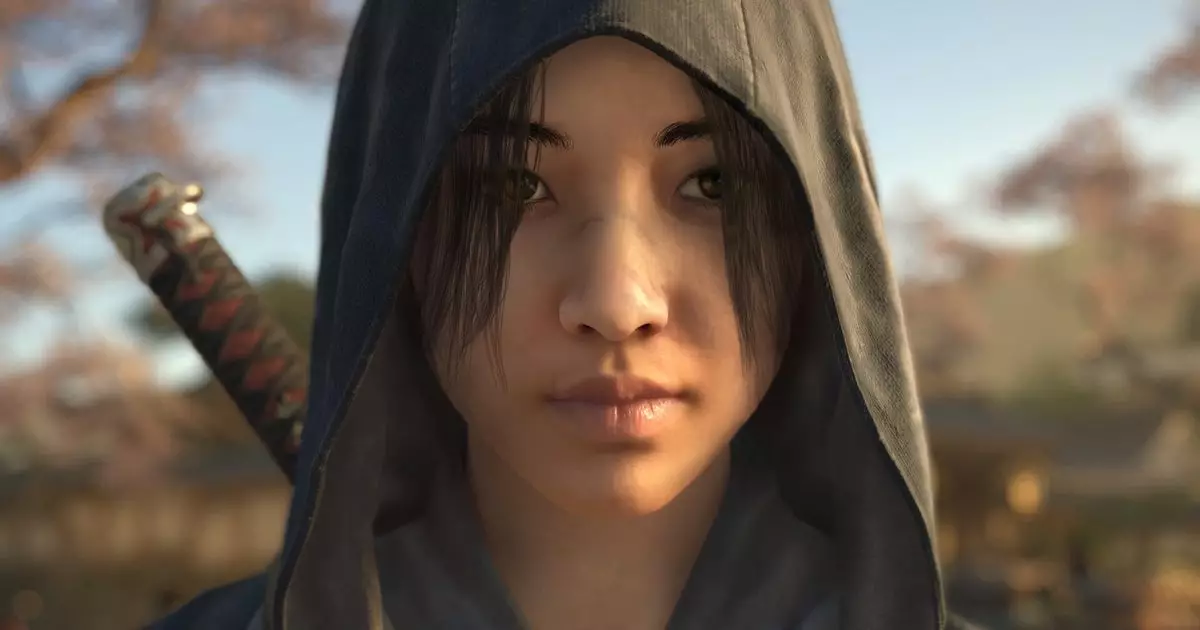The Assassin’s Creed franchise has long been synonymous with stealth action, yet with the upcoming title, Assassin’s Creed Shadows, significant changes are being introduced that are set to redefine the series’ approach to stealth gameplay. This article delves into the innovations outlined by Ubisoft that might just pivot the series towards fresh mechanics, reshaping not only how players engage with the game but also their overall strategic mindset.
One of the most talked-about alterations in Assassin’s Creed Shadows is the removal of the iconic companion eagle that has traditionally assisted players in spotting threats from the skies. Instead, players will have to rely on their ingenuity and the environment around them. The new stealth mechanic allows characters to genuinely blend into the shadows; during nighttime, players can utilize dark areas as effective hiding spots. This ambiance change creates a more immersive experience, where players must observe and interact with their surroundings to find strategic advantages, empowering them to craft unique routes of stealth.
Additionally, for the first time in the franchise, characters can assume a prone position. This controversial mechanic invites opportunities for tactics previously unexplored in the series. Think of it as a chance to exhibit patience and precision: players can now roll and crawl under structures, thus expanding their mobility and options in enemy territories. These enhancements vent the frustrations of previous iterations where such movements felt limited, granting players a new lease on stealth gameplay that rewards attentiveness.
The breadth of tactics available to players in Shadows has also seen substantial growth. Both protagonists, Naoe and Yusuke, will be armed with a variety of stealth tools, including smoke bombs, shinobi bells for distractions, and weapons like throwing knives and shuriken. The ability to distract guards using sound effectively introduces an element of environmental manipulation previously underutilized.
Returning to the forefront is the feature of double assassinations, a hallmark gameplay feature from earlier series entries. By mastering a specific skill tied to the Tanto weapon, players can execute coordinated eliminations. This reintroduction holds vast strategic implications, allowing players to tackle groups of enemies with precision. Furthermore, the mechanics surrounding these killings are streamlined through a color-coded assassination prompt, indicating the effectiveness of the player’s actions. White for an instant kill, yellow for partial damage, and red indicating failure integrate a tactical layer, enhancing challenge and player engagement.
Despite the exciting new additions to the stealth mechanics, Shadows is still firmly rooted in its RPG foundations. This means that while employing flashy new tactics, players must also consider their character’s progression. Neglecting upgrades, particularly for assassination tools, can render newfound abilities difficult to deploy effectively. This complexity adds an interesting dichotomy: as players sharpen their stealth techniques, they must also invest in their character’s development, balancing risk versus reward in assassination scenarios.
One would argue that this kind of design allows for a more personalized gaming experience, yet it raises concerns about accessibility. Players may find themselves frustrated if they have equipped their character poorly during intense stealth encounters. There is a dilemma here; while RPG elements contribute depth, they may also alienate those who prefer straightforward stealth gameplay.
Originally set for release this year, Assassin’s Creed Shadows’ delay until February 14, 2025, highlights Ubisoft’s commitment to quality. Learning from titles like Star Wars Outlaws, which have faced challenges in stealth mechanics post-release, the decision to refine their approach could be seen as a response to market feedback. Ubisoft’s willingness to adjust in light of customer experiences demonstrates a dedication to excellence that bodes well for Shadows’ future.
In a gaming landscape where stealth mechanics often face scrutiny, Shadows promises to usher in innovative changes. With new stealth strategies, tools, and a focus on immersion, the game could redefine what players expect from the Assassin’s Creed franchise. For veterans and newcomers alike, Assassin’s Creed Shadows exemplifies courage in company vision and commitment to player engagement, proving that the shadows can be a transformative space in the evolution of gaming.

